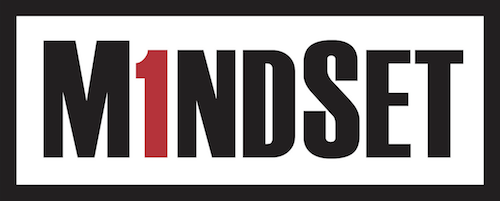MindSet encourages leaders to use their influence (and power!) to help employee growth in such a manner as to foster greater success both at work and in life. A lofty goal – one often not easily achieved.
To promote employee growth, one is typically told to break down the skill or insight you wish your target to acquire, and to then teach it in an orderly and structured way so as to allow the new skill or insight to be acquired by the fortunate target of your instruction or advice. And indeed, that can be a quite successful teaching method if your target presents as a tabula rasa (“blank slate” for those of you who abhor a little Latin tossed in). Unfortunately, seldom do we find such to be the case when dealing with humans above the age of roughly 6 months.
So it was not surprising when a client recently talked with me about their growing frustration at the degree to which a couple otherwise talented employees seemed to be immune to this leader’s encouragement and tutelage. There was so much potential for growth – but the leader’s mentoring efforts seemed to be going largely unheeded by the target staff members. Why?
My first observation was that my client failed to grasp that he was not simply attempting to grow these two employees; no, he was working to change them. It can be hard enough to add a new behavior to someone’s repertoire, but changing existing behavior is in a whole other league. Humans have an innate resistance to change. You see change involves not only accepting new information and insights into our brains, but also removing interfering thoughts and habits that prevent new behaviors or insights from taking hold.
My point is a direct one: we should often delay pouring better thoughts or information into the brains of our staff members until we have first spent time removing the dysfunctional thoughts or information that currently reside between their ears.
MindSet anticipates and explains growth resistance; let’s explore some of the more common reasons:
- The leader has failed to establish a trusting relationship with the target employee. A player listens to the feedback of a coach if, and ONLY if, the coach has earned the trust of the player. The player must first believe that the coach’s motives are pure in wanting to help him or her to become more successful. Until that bond is established, not much teaching will be absorbed.
- MindSet teaches that Maslow Had It Right…our ability, and even willingness, to respond to a growth opportunity will be significantly reduced if a more basic need is threatened or unfulfilled. If the targeted staff member has other stressors in their life that threaten more basic needs (e.g., safety, security, a sense of belonging), you will see little interest in professional or personal growth.
- Arrogance – few attitudinal factors can more inhibit personal growth. MindSet’s firm approach to dealing with this personality type will likely be necessary before growth will occur.
- MindSet teaches leaders to assess and encourage Emotional Fitness in their employees. The reason is straightforward: those who are riddled with MindSet’s Cognitive Blunders are not likely to be able to achieve their potential. The challenge for leaders is to know your target well enough to identify the blunders, help those staff members to rid themselves of their unhealthy thought patterns, and then help to replace them with more functional – and growth oriented – MindSets.
Should my client give up on his attempts to help these two talented staff members grow? Absolutely not. But he would be well advised to stop banging his head against brick until he has done a deeper analysis to identify why they appear to be resistive. What thoughts are clogging up their mind – and stopping employee growth? Possible examples: “What are my supervisor’s real motives? You can’t trust management!” “Oh Lord, what if I am pregnant – how will we ever afford the cost!” “Good grief, this clown is actually trying to tell me how to act! Heck, I should have his job.” “It would be so embarrassing if I tried and failed. What would everyone think of me!”
Until such mental clogs are identified and blown away, little absorption of new insights will talk place. And one final note of warning – these dysfunctional MindSets have to be thoroughly obliterated and replaced with functional MindSets that become the new habit. If not, just like old muscle memory, the old thought patterns will emerge when the human is put under stress.

Founder of MindSet, LLC.

